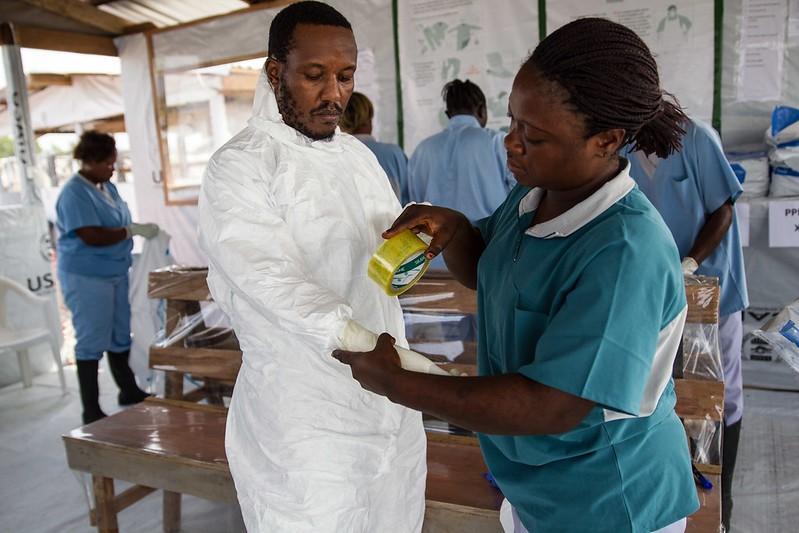After less than 4 months, Uganda today announced the end of its Ebola outbreak, which marked the country's first involving the less common Sudan strain in more than a decade.
The outbreak—announced on Sep 20, 2022—was centered around Mubende district in the central part of the country, with a few illnesses reported in Kampala, the country's capital and largest city, sparking fears that the virus would spread more quickly in the city of 1.7 million people.
The first confirmed case involved a 24-year-old man from Mubende district, which came with reports of six suspicion deaths in the area. The outbreak total reached 164 cases, 142 of them confirmed and 22 listed as probable. Fifty-five people died from their infections, putting the case-fatality rate among confirmed infections at 39%, according to the World Health Organization.
Uganda drew on its experience
Early in the outbreak, health officials had feared a more widespread event, amid suspicions that the virus may have been spreading for 3 weeks before the first cases were detected. Also, the epicenter was located in a busy transit region not far from gold mining areas.
Uganda, however, is known for its Ebola control efforts and its quick response when two imported cases were reported in 2019 that were linked to a large Ebola Zaire outbreak in neighboring Democratic Republic of the Congo. Also, Uganda had battled five earlier outbreaks.
The last patient in the current outbreak was released from medical care on Nov 30, starting the 42-day countdown, which covers two incubation periods.
In a WHO statement, Uganda Health Minister Ruth Aceng Ocero, MD, said the country brought a swift end to the outbreak by ramping up control measures across nine districts. But she said community involvement played a crucial role. "The magic bullet has been our communities, who understood the importance of doing what was needed to end the outbreak and took action," she said.
Tedros Adhanom Ghebreyesus, PhD, the WHO's director-general, congratulated Uganda for its robust response and quick end to the outbreak. "Uganda has shown that Ebola can be defeated when the whole system works together, from having an alert system in place, to finding and caring for people affected and their contacts, to gaining the full participation of affected communities in the response," he said.
The magic bullet has been our communities, who understood the importance of doing what was needed to end the outbreak.
Uganda had key help from the WHO and its partners. The WHO said it provided nearly $6.5 million to support Uganda's response, with $3 million more to help neighboring countries prepare for potential spread.
Doctors Without Borders cared for 107 confirmed patients and 1,125 suspected case-patients at two Ebola treatment centers (ETCs). They also built six ETCs, helped train and supply 212 health centers, and spearheaded health promotion activities in the hard-hit areas.
Uncertain path for vaccine trials
Another fear surrounding the outbreak was a lack of vaccines and treatments that target Sudan Ebola, though scientists, vaccine developers, and health officials rushed to identify potential vaccines and treatments.
Three candidate vaccines were identified, and, beginning on Dec 8, more than 5,000 doses arrived in the country, the WHO said.
Yonas Tegegn Woldemariam, MD, the WHO's Uganda representative, said though the vaccine candidates weren't used, the doses are in place for quick deployment if Sudan Ebola strikes again. The WHO said experts will meet tomorrow to discuss the future of the vaccines, Reuters reported today.
















